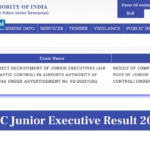After 25 years, one of Indian television’s most iconic family dramas, Kyunki Saas Bhi Kabhi Bahu Thi, has returned—this time with a revamped perspective and a shorter narrative arc. Premiering on July 29, 2025, on Star Plus and JioCinema, the second season brings back the beloved character Tulsi Virani, played by Smriti Irani. With generational values evolving, Season 2 attempts to capture the delicate balance between nostalgia and contemporary storytelling in a finite, compact format.
From Limitless Episodes to a Focused Storyline
Season 1 ran for over 1,800 episodes, defining a generation of Indian daily soaps. In stark contrast, Season 2 is confined to around 150 episodes. This deliberate shift from an open-ended narrative to a finite series signals a focus on quality storytelling. The aim is to avoid filler content and instead explore meaningful themes that resonate with the current societal landscape.
Smriti Irani’s Return: Tulsi Reborn
Smriti Irani’s reprisal of Tulsi Virani has been met with widespread admiration. No longer the naive daughter-in-law of the Virani household, Tulsi returns as a wise, dignified matriarch. Her introduction in the first episode—performing rituals with grace—immediately re-establishes her moral grounding. Draped in a maroon saree and adorned with traditional jewelry, Tulsi’s presence evokes powerful nostalgia while showcasing emotional maturity.
Themes and Plotlines: The Old Meets the New
Season 2 intricately weaves intergenerational themes: clashes between modern ambitions and traditional expectations, shifting gender roles, and the identity crises of today’s youth. Tulsi acts as the moral compass for a family navigating these complexities. Her role is less about imposing values and more about helping the younger generation interpret and adapt them.
A Balanced Cast: Familiar Faces and New Energy
The show strikes a balance between old and new by bringing back core characters like Mihir (Amar Upadhyay), Karan (Hiten Tejwani), Nandini (Gauri Pradhan), Gayatri (Kamalika Guha), Hemant (Shakti Anand), and the ever-entertaining Daksha (Ketaki Dave). Their presence adds emotional depth and continuity to the story.
Joining them is a fresh crop of actors portraying Tulsi and Mihir’s grown-up children. These include Rohit Suchanti, Shagun Sharma, Aman Gandhi, Tanisha Mehta, Ankit Bhatia, and Prachi Singh. Each new character grapples with dilemmas rooted in modern society—career pressures, relationship dynamics, and the search for personal identity—making them relatable to a younger audience.
A notable addition is Barkha Bisht, who steps into the antagonist’s shoes as Mandira. Unlike the caricatured villains of yesteryears, her character promises to be nuanced and emotionally layered.
Reception and Fan Reactions
The teaser and initial episodes broke viewership records online. Social media exploded with emotional reactions. Families gathered to watch the reboot, bridging generational gaps. Tweets and posts ranged from ecstatic nostalgia to playful criticism. Some users called the revival “epic brainrot”—a term mixing amusement with fondness—highlighting the enduring emotional pull of the series.
A recurring theme among fans is shared viewing across generations. Children mimicking the title track, mothers reminiscing, and grandparents shedding tears at familiar dialogues—it all showcases the show’s timeless cultural resonance.
Smriti Irani: Dual Roles, Singular Impact
Smriti Irani, now a cabinet minister, calls herself a “full-time politician and part-time actor.” Her return to the small screen stirred public curiosity. She seamlessly juggles her political and acting roles, bringing gravitas and authenticity to Tulsi. In interviews, she speaks candidly about her deep emotional connection to the character and her desire to honor its legacy.
Critical Perspective: A Cultural Revival or Backward Glance?
While fans welcome the show’s return, critics have raised valid questions. Is there a place for “sanskaari” dramas in today’s bold and fast-paced OTT era? Does reviving age-old moral frameworks reinforce outdated gender roles, or does it provide a necessary cultural anchor in changing times?
Supporters argue that the show adapts its value system to reflect modern dilemmas. It doesn’t preach but poses questions, allowing the audience to reflect and interpret. For example, issues like career vs. family, mental health, and emotional intelligence are tackled through nuanced story arcs.
Episode 1 Highlights: Nostalgia with Nuance
The pilot episode opens with Tulsi performing a morning ritual—a gentle nod to Baa’s blessings from Season 1. The scene not only acknowledges the past but also signals a renewed commitment to emotional and cultural depth.
Tributes to deceased characters like Baa and Savita Virani are seamlessly woven into the narrative. These moments carry emotional weight, reflecting the family’s evolving dynamic while honoring those who once anchored it.
Subtle power struggles, like the one between Tulsi and Gayatri, are introduced early on, setting the tone for deeper themes of trust, leadership, and intra-family politics.
Cultural Significance: More Than Just Drama
- Kyunki Saas Bhi Kabhi Bahu Thi 2 * is more than a television show—it’s a cultural mirror. In an era where content consumption is fragmented, the show serves as a reminder of shared cultural memory. It invites conversations about how we evolve as families, as societies, and as individuals.
Through its modern lens, it reframes the idea of ‘family drama’—not as regressive soap but as a platform to explore values, empathy, and emotional resilience. For the Indian audience, especially those who grew up with Star Plus in the early 2000s, the show is not just entertainment; it’s a heartfelt return to storytelling with soul.
Conclusion: A Reboot Worth Watching
- Kyunki Saas Bhi Kabhi Bahu Thi Season 2 * is a thoughtful reimagining that pays tribute to its past while adapting to the present. With its tight script, balanced casting, and emotionally resonant themes, it appeals both to long-time fans and curious new viewers. Smriti Irani’s commanding return as Tulsi binds the narrative with a sense of purpose and legacy.










